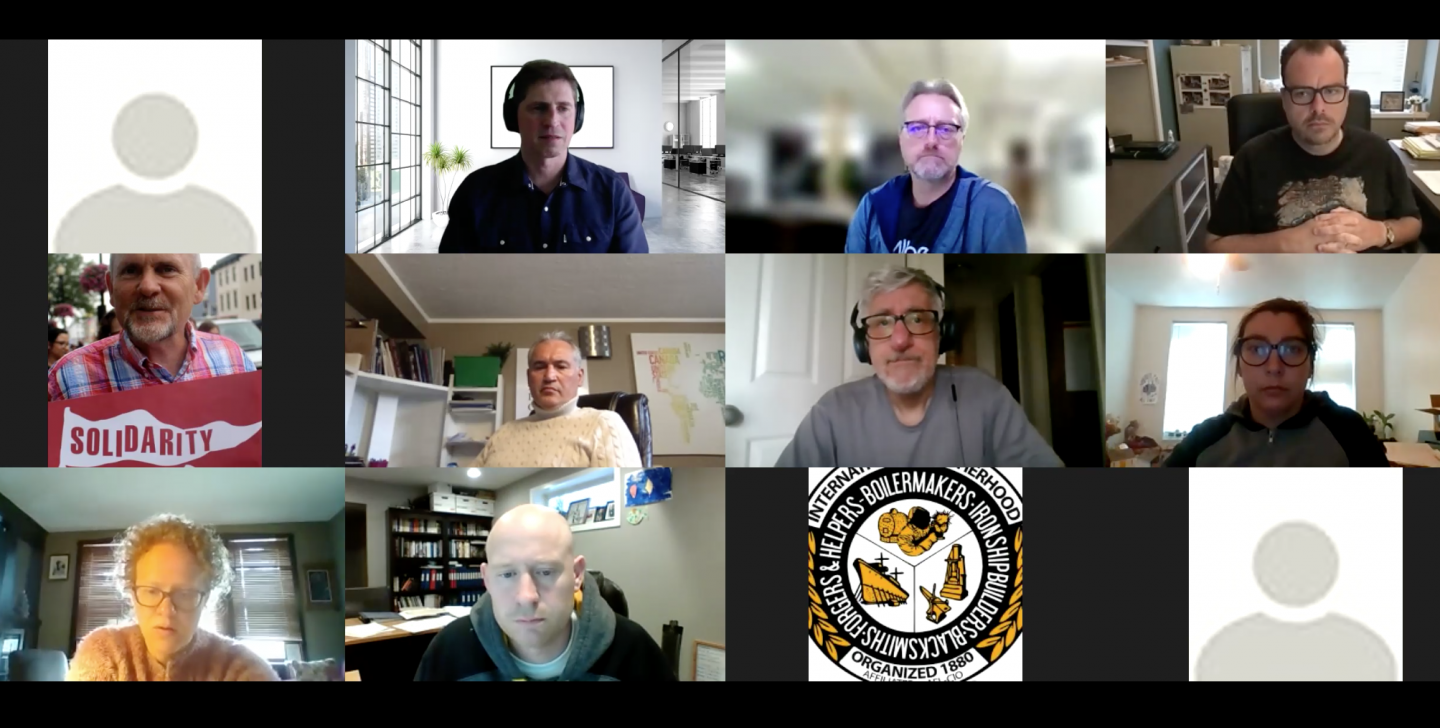Read this article in:
English
20 April, 2021Representatives of IndustriALL Global Union’s North American affiliates in the cement industry met to discuss labour issues, updating each other on collective bargaining, organizing campaigns and global trends in the industry, including how the pandemic impacts workers.
According to participants no massive layoffs took place in the cement industry in North America. According to reports, shutdowns of some kilns at cement plants resulted in up to 60 per cent reduction of workforce in Quebec, Canada. Representatives from the United States reported some layoffs and stoppages in the beginning of the pandemic, but most workers have already returned to work.
Participants noted that most cement companies put in place Covid-19 safety protocols and there have been no problems accessing personal protection equipment. Extra time for lunch breaks, allowing workers to respect social distancing has been added through collective bargaining.
International Brotherhood of Boilermakers Canada raised serious health and safety concerns at LafargeHolcim operations in Canada, in particular two fatalities at Lafarge Exshaw in Alberta in October 2020 and Lafarge Richmond in November 2020. Boilermakers' union brought concerns over the incidents to the company. IndustriALL also joined the union and demanded the company to engage in a social dialogue with the International Brotherhood of Boilermakers and work together to ensure the health and safety of workers.
Prior to the meeting, US President Biden announced an infrastructure bill which will attract substantial investments in bridges, roads and airports, requiring a lot of cement. It is not yet clear how much of it will be produced locally and how much will be imported. Unions are expecting fair work contracts for their members involved in these projects.
Participants debated on the future of the industry in light of the increasing pressure to reduce CO2 emissions. The cement industry is currently responsible for about 7 to 8 per cent CO2 emissions. Participants received an update on current CCS projects at big cement multinationals including LafargeHolcim, HeidelbergCement and Cemex and other. Participants also spoke about other options of emission reduction in the industry. Delegates agreed to closer study the status of carbon capture projects in China, the biggest cement producer in the world, and therefore the biggest emitter of CO2.
It was agreed that Industry 4.0, another sphere of innovation with a big impact on jobs and conditions will be part of the discussion at further meetings.
“Our North America cement union network is increasing its power through cooperation, communication and exchange. This boosts solidarity among our affiliates and allows us to face challenges and fight for decent working conditions,”
says Alexander Ivanou, industrial materials officer.
North American cement union network is composed of International Brotherhood of Teamsters from the USA and Canada, the United Steelworkers from Canada and the USA, the International Brotherhood of Boilermakers and the Fédération de l’Industrie Manufacturière from francophone Canada representing cement workers in both countries. The last meeting was held on 1 April 2021.
